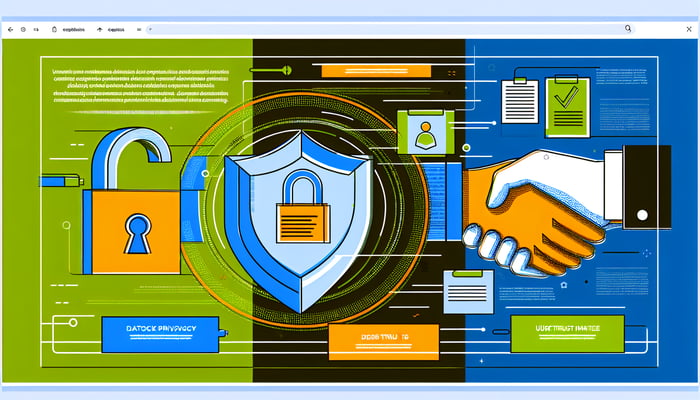The Ethics of Online Quizzes: Data Privacy and User Trust
In the digital age, online quizzes have become a popular tool for entertainment, education, and self-assessment. However, with their growing popularity comes a significant concern: the ethics of data privacy and user trust. In this blog post, we will explore the implications of online quizzes on personal data, the importance of user trust, and best practices for ensuring ethical standards in quiz creation.
The Rise of Online Quizzes
From personality tests to knowledge assessments, online quizzes attract millions of users worldwide. They offer an engaging way to learn about oneself or to gather information on a particular topic. However, many users may not realize that their participation in these quizzes often involves the collection of personal data.
The Data Privacy Dilemma
When users engage with online quizzes, they frequently provide personal information such as names, email addresses, and social media profiles. While some quizzes may only ask for minimal data, others can collect extensive information. Here are some factors to consider:
- Data Collection: Quiz creators may collect data to analyze user trends, improve content, or for marketing purposes.
- Data Security: There is a risk that personal data could be compromised if proper security measures are not implemented.
- Informed Consent: Users should be made aware of what data is being collected and how it will be used.
User Trust and Ethical Responsibility
User trust is paramount in maintaining a positive relationship between quiz creators and participants. Ethical responsibility entails being transparent about data usage and respecting user privacy. Here are some ways to foster user trust:
- Clear Privacy Policies: Ensure that privacy policies are concise and easily accessible, outlining how user data will be handled.
- Opt-in Options: Give users the choice to opt-in for data collection rather than assuming consent.
- Data Anonymization: Where possible, anonymize data to protect user identities.
- Regular Audits: Conduct regular audits of data collection practices to ensure compliance with ethical standards.
Best Practices for Ethical Quiz Creation
To maintain ethical standards in online quizzes, creators can follow these best practices:
- Limit Data Collection: Only collect information that is necessary for the quiz.
- Implement Strong Security Measures: Use encryption and secure servers to protect user data.
- Educate Users: Provide information on how quiz results can be beneficial and how data is protected.
- Feedback Mechanism: Allow users to provide feedback on data usage policies and quiz content.
Conclusion
As online quizzes continue to thrive, it is crucial for creators to prioritize data privacy and user trust. By implementing ethical practices and being transparent with users, quiz creators can not only protect personal information but also foster a loyal user base. Ultimately, the responsible handling of data will contribute to a more trustworthy digital environment for all.



